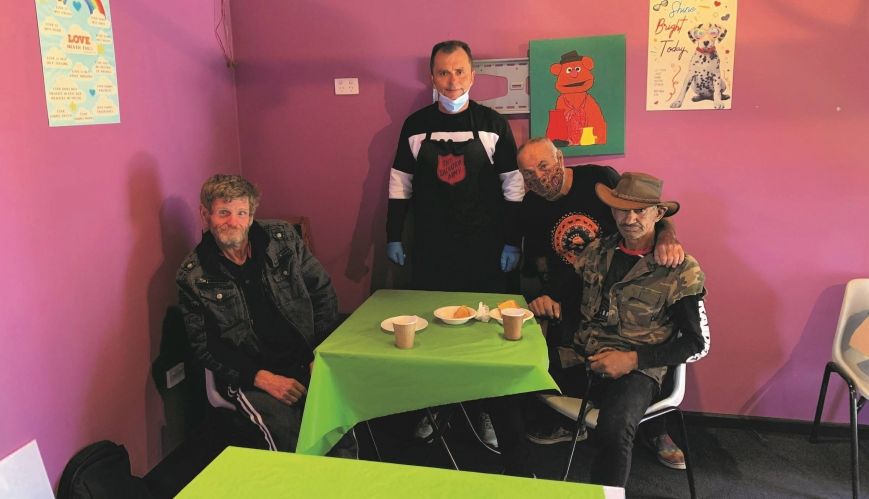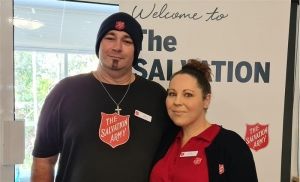Transaction or transformation?

Transaction or transformation?
8 June 2022
Connecting with the community over breakfast, coffee and conversation with Noarlunga Corps’ (SA) ‘Brekkie and Chat’.
When community members come to a business, they engage in a transaction – and a service is provided.
When community members come to The Salvation Army, our prayer is that the engagement is more than a transaction. Our vision is to ‘transform Australia one life at a time with the love of Jesus’. This is much more than a transaction, and in God’s purpose, that transformation will be mutual – for us and the community member.
No doubt, some people come to The Salvation Army looking for a simple transaction – to collect an emergency relief payment, pick up a meal, and find a warm bed for the night. The danger is that the community member is seen as nothing more than a ‘poor person’ or a ‘welfare recipient’ we can help. The Salvation Army is seen as little more than a charity for a handout.
At one level, transactional ministry is easy. We can stand behind a desk, distribute goods to people, and not engage with them as people. Like a bank or business, they turn and go away. Transaction complete.
How do we move from transactional to transformational ministry?
To move from a transactional to a transformational ministry can be costly. The community member might be socially awkward, under the influence of a drug, or suffer from a mental health issue. Their clothes might not be clean or fragrant. Sitting and having a coffee and chatting with them could be challenging – for us.
It is a major change for some in the way we do ministry ‘to the poor’ to a ministry ‘with or alongside the poor.’
When helping hurts
When Helping Hurts is a book that affirms that “until we embrace our mutual brokenness, our work with low-income people is likely to do far more harm than good (p.61)”. One of the biggest problems in ministries is that they promote a sense of superiority for the giver and feelings of inferiority and shame for the recipient.
 Bayside Corps’ Daniel and Lisa Rylance are committed to serving the community that once served them.
Bayside Corps’ Daniel and Lisa Rylance are committed to serving the community that once served them.
They argue that in transformational ministries, “the goal is to see people restored to being what God created them to be: people who understand that they are created in the image of God with the gifts, abilities and capacity to make decisions and to effect change in the world around them; and people who steward their lives, communities, resources and relationships to bring glory to God (p.77).” The community member is seen as a unique, precious person with a rich history, full of stories, abilities and experiences.
At corps like Bayside in Queensland, Bendigo in Victoria and Noarlunga in South Australia, community members are valued for who they are and are seen as much more than ‘welfare recipients’. These are places where people might come just for a transaction and find they are welcomed, loved and given the opportunity to be involved in something that is much more than the delivery of a food voucher.
The teams, which are largely made up of a dedicated group of volunteers, have created an environment where community members can sit, talk, have a cuppa and something to eat and come back each week, regardless of whether they need ongoing Emergency Relief. They can find themselves welcomed into a faith community where they experience the generous welcome of God.
No ‘us and them’
Heuertz and Pohl, in Friendship at the Margins, argue that a focus on relationships and friendship rearranges our assumptions and challenges conventional categories of ‘otherness’. This means recognising shared mutuality and rejecting an ‘us and them’ way of viewing others.
God is recognised to be already present in the lives of the vulnerable, and “people are transformed when someone is willing to listen to their stories, share a meal with them, and find their insights and concerns important or interesting (p.80).” They note William Booth’s comment that, “One of the secrets of the success of The Salvation Army is that the friendless of the world find friends in it.”
This is where we will see God transform lives – the community members we serve and our own.
Comments
Hi
Totally agree
But sadly we have lost the relational approach with the way our streams are operating and managed
It saddens me deeply